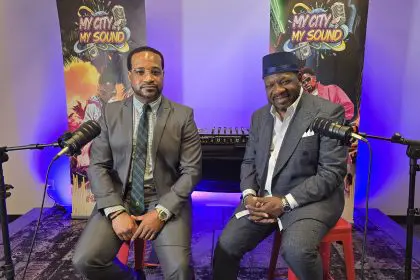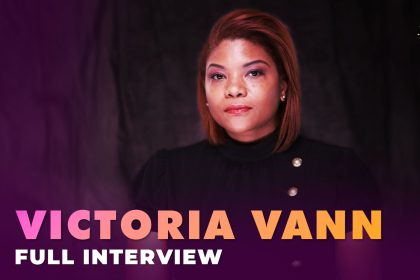Marc Bamuthi Joseph has always sought to combine social impact, arts, and culture to drive change, but he does it as a spoken word artist. The Morehouse College alum recently curated a piece titled “brea(d)th,” in which he delves into the Black experience, inspired by the enduring impact of George Floyd’s murder and the idea of the American promise.
Joseph spoke with rolling out about the piece, the Black experience, and how an HBCU shaped his career path.
Tell us about “brea(d)th.”
“Brea(d)th” was a piece commissioned by the Minnesota Orchestra in reflection of George Floyd. It’s a piece that features me doing spoken word and another Morehouse alumnus, a brother named Carlos Simon, who composed the piece, and a wide chorus as well as the symphony. If anybody’s ever been to the symphony or may be familiar with the terms, you hear the term concerto for piano or concerto for violin; this is a concerto for spoken word that is me speaking in four parts in reflection of George Floyd. The reason why it’s called “brea(d)th,” and we spell it that way, is because the first part is about the breadth of the task, as in the full scope of work that is to be done to uplift the community. Bread as in money, but also what you pay for justice, and then breath, which was George Floyd’s final request. It’s a deep piece.
What message do you want to convey with this piece?
One of the things that we stress in the piece is even though we’re honoring a person, what we’re really honoring is the legacy of progress for African-descended people on this continent, and also just the idea of the American promise. We talk about the American premise and American promise, and the premise of America, democracy itself, requires participation and investment. But the promise of America is something a little bit different than the American dream. It’s not so much about economic upliftment; it really is about joy and the pursuit of happiness, and the belief that inspiration has to be a key part in how it is that we identify as Americans. Basically, the democracy can’t survive if we’re not an inspired people. The piece speaks very specifically to George Floyd’s experience, but I would say it’s expansive.
How did going to an HBCU help your career path?
I loved being at Morehouse. There’s a brother named Saul Williams, who’s one of my favorite poets ever. He was a senior when I was a freshman at Morehouse, and he was a person that was kind of a gateway for me. Just being at Morehouse and being in the Atlanta University Center in the ’90s was a great time. The first party that I ever threw at Morehouse, OutKast was the headliner, so I came in at a great time for hip-hop. I came in at a great time for culture. The last great Freaknik was probably my freshman year.
I talked about Dr. King’s legacy, and Dr. King didn’t get out of Morehouse with only incredible oratory skills. You can’t be in Atlanta and not be connected to the funk. So, all those things being possible without apology, I think was kind of the great gift of the Atlanta University Center and Morehouse College. It was four years in my formative years where I could socially proceed without apology for my Blackness, and I often talk about uppercase Blacks, meaning you really lead with your chest and ground your identity with a capital B, and being at Morehouse absolutely solidified that for me.
















